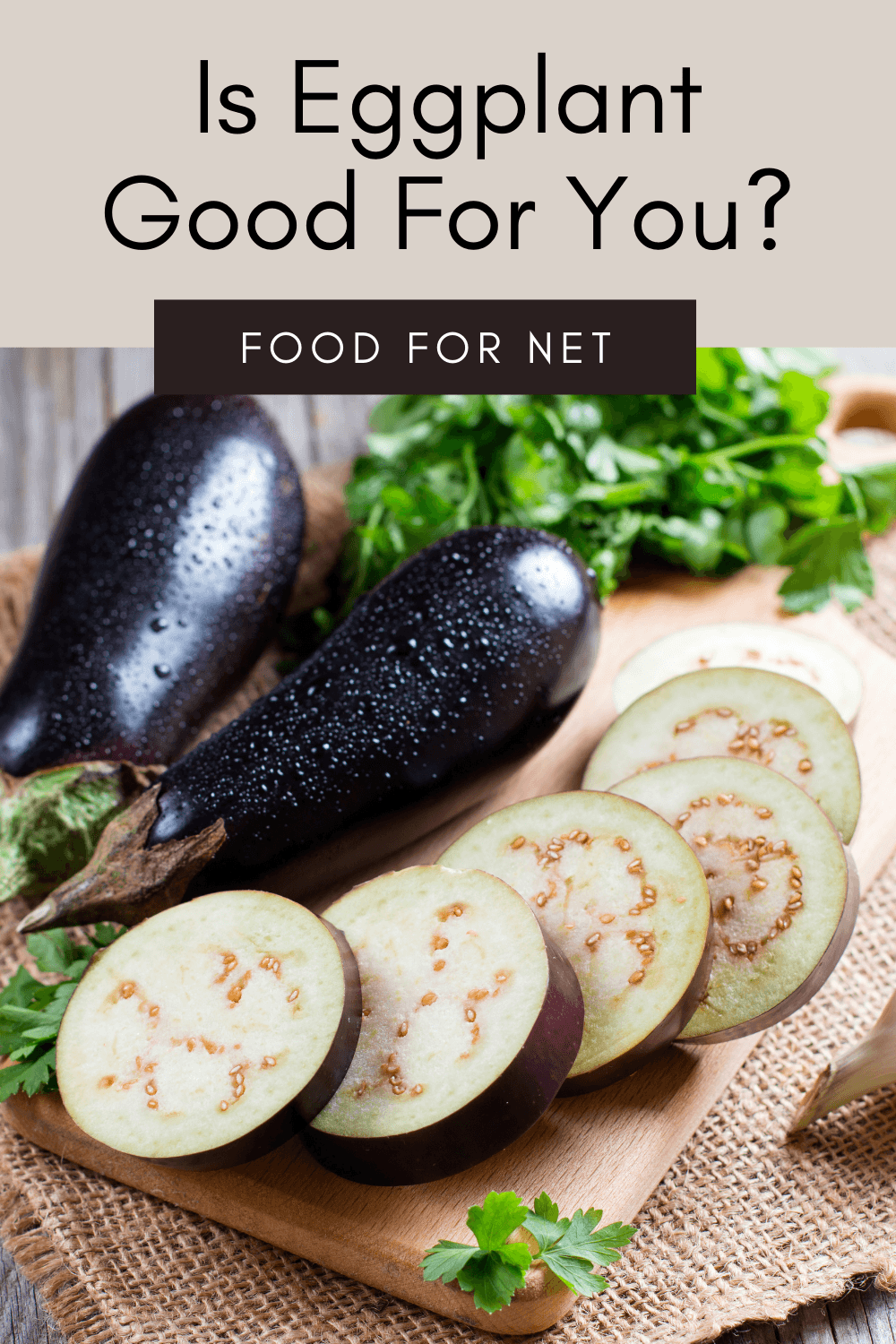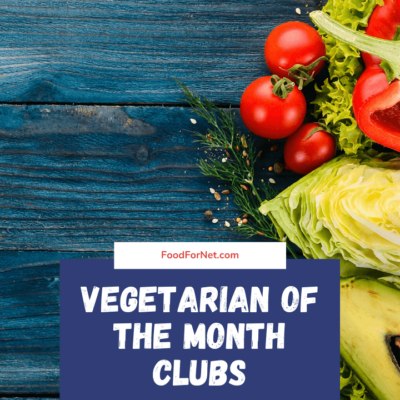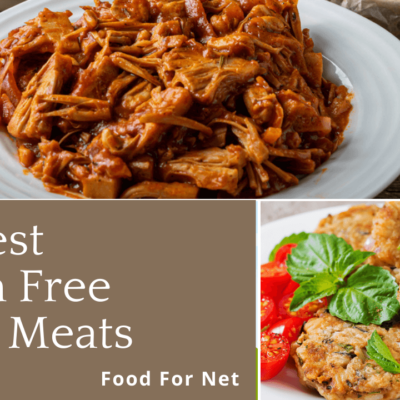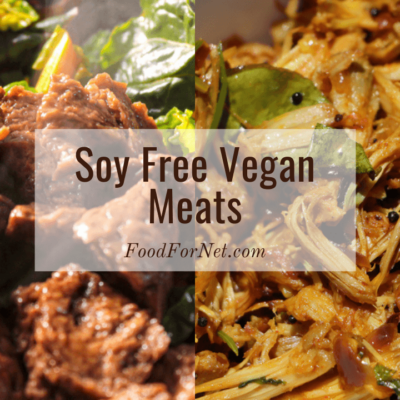
We’re all familiar with the large deep purple eggplant. It always looks a little strange in the grocery store, but can be delicious in a surprising number of dishes. In practice though, these deep purple eggplants (or aubergines, as they’re also known) are far from the only type.
You can also find fairy tale eggplants, which are striped with purple and white, along with small pale green eggplants, long and slender purple eggplants, dark green eggplants, and even white ones. There are some differences in flavor and texture between these types, along with plenty of similarities.
With this post, we’re focusing on the classic purple eggplant, as this is the most common type. However, most of the benefits apply to other types of eggplant too, so don’t be afraid to branch out and try them for yourself.
Is Eggplant Good For You?
- Eggplant Nutrition
- Benefits Of Eggplant
- How Eggplant Could Be A Problem
- Eggplant And Iron Deficiency
- Is Eggplant Keto Friendly?
- Ways To Use Eggplant
- How You Prepare Eggplant Matters
- Final Thoughts
Eggplant Nutrition

Where else could we begin but with nutrition? The nutrients in your food and drink influence so many things, including the health benefits you receive. For 100 grams of raw eggplant, the nutritional profile looks like this:
- Calories: 24
- Carbohydrates: 5.7 grams
- Dietary Fiber: 3.4 grams
- Sugars: 2.4 grams
- Protein: 1.0 grams
- Fat: 0.2 grams
There are plenty of nutrients present as well, including folate, vitamin C, vitamin K, vitamin B6, manganese, and potassium.
The amounts of these nutrients aren’t amazing, as you’re often getting less than 5% of your daily intake. This is a far cry from foods like kale, red peppers, sardines, and Brazil nuts, which offer more than 100% of your daily intake for some nutrients in a single serving.
Still, you don’t need exceptional amounts of nutrients in every type of food you eat. Low to moderate levels are perfectly fine some of the time. The nutrients still all add up and help with your daily intake.
Benefits Of Eggplant
Decent Source Of Fiber
Fiber mightn’t sound like an exciting reason to eat eggplant. After all, you get some fiber in most fruits and vegetables.
The thing is, though, that while most of us know that fiber is important, we also assume that we’re already getting enough of it. The problem is, we’re often under-consuming fiber, by a large amount.
This is a serious issue, as fiber is essential throughout our bodies. It keeps us regular, reducing the risk of both constipation and diarrhea. Plus, getting enough fiber helps to keep our blood sugar and cholesterol levels stable, effects that then reduce the risk of type 2 diabetes and heart disease.
With eggplant, you’re getting close to 3.5 grams of fiber in a 100 gram serving, from a vegetable that contains barely any fat. Plus, you’ll often be serving eggplant with other fiber rich ingredients, like beans, brussels sprouts, zucchini, and the like.
Helps To Protect Your Heart

Eggplant is also incredibly relevant for your heart. The fiber is one reason for this, but there are other effects too. For one thing, you’re getting thiamine, vitamin B6, potassium, and copper in eggplants, nutrients that are all relevant for your heart. Potassium, for example, is well-known for its ability to decrease blood pressure.
There are also the antioxidants in eggplants, including a class of compounds known as anthocyanins. These too have been linked to lower blood pressure and decreased heart disease risk.
May Improve Your Brain Health
Eggplant is sometimes associated with improved cognitive function as well, largely due to the antioxidants. Anthocyanins are important here, including one called nasunin, which plays a role in nutrient transport.
These antioxidants play various roles, such as promoting better blood flow in the brain and reducing inflammation. Such effects could easily improve cognitive function, reduce cognitive decline, and perhaps even decrease the risk of conditions like dementia.
Helps With Blood Sugar Levels
Eggplants are an easy addition to a diabetic diet, as they’re naturally low in sugar and contain a decent amount of fiber. This combination of features is perfect for helping to control your blood sugar levels.
The polyphenols in eggplants may help as well, as such compounds can play a role in how our bodies metabolize carbohydrates.
A Low FODMAP Ingredient

Here’s some good news for anyone with irritable bowel syndrome (IBS) – a cup of eggplant is considered low in FODMAPs. You need to hit a serving of two and a half cups to even hit moderate FODMAP levels, which is pretty good.
However, as we’ll discuss later on, eggplant is a nightshade vegetable. Such vegetables contain alkaloids that could make IBS symptoms worse. You might need to experiment for yourself to find out whether you can have eggplant safely in your diet or not.
A Decent Source Of Antioxidants
We can’t talk about eggplant without mentioning antioxidants. After all, the rich purple color guarantees that the vegetable is a decent source of antioxidants. It even contains lutein and zeaxanthin, which support your eye health and can reduce the risk age-related macular degeneration.
There is also a subgroup of antioxidants called anthocyanins, which we talked about earlier. These anthocyanins may be more powerful than other types of antioxidants, leading to additional health benefits.
Antioxidants are interesting because they’ve become such a trending idea in recent years. They’re well known for their ability to decrease free radical damage and protect against disease, to the point that it almost sounds like antioxidants might cure all ills.
Not surprisingly, perhaps, that’s not the case. Antioxidants are powerful when you need them, but only up to a point. Consuming an excessive amount of antioxidants could even be harmful (which is exactly what happens with antioxidant supplements).
So, what should you do?
For most of us, the answer is to stop focusing so heavily on antioxidants. Aim to have a healthy diet instead, one that’s rich in natural ingredients, including fruits, vegetables, legumes, and whole grains. Do this and you should get all the antioxidants and other healthy compounds that you need.
Anyone following a keto diet, a paleo diet, or some other somewhat restrictive approach, may need to pay a little more attention. You’ll need to make sure that you’re still getting all the nutrients and antioxidants that you need. This shouldn’t be too difficult though, as there are so many delicious antioxidant rich foods out there.
Useful For Weight Loss
Finally, eggplant can help to promote weight loss. How could it not, right? It’s a low calorie vegetable that offers a decent amount of fiber. This is exactly what you need when you’re trying to lose weight.
Plus, you can sometimes use eggplant instead of calorie-heavy ingredients to make some meals much healthier, like replacing a burger bun with a thick slice of cooked eggplant.
How Eggplant Could Be A Problem

Eggplant Is A Nightshade Vegetable
Eggplant falls into a family called nightshade vegetables. Other additions to this group include potatoes, tomatoes, and peppers. While nightshade vegetables are often rich in nutrients and antioxidants, they contain compounds that some people find concerning.
In particular, nightshades contain nitrogen-based substances called alkaloids. Alkaloids are mostly concentrated in the stems and leaves of nightshade plants, helping to protect the plants from predators. Even so, some alkaloids can be found in the edible portion of the plant as well, which is the reason for concern.
Theories suggest that these alkaloids could contribute to autoimmune disease or make IBD symptoms worse. There is some evidence for the connection between alkaloids and IBD symptoms, but studies have yet to find any notable link between alkaloids and autoimmune disease.
Despite the lack of evidence, many people choose to cut nightshade vegetables out of their diet entirely. You could also try removing nightshade vegetables for a while then slowly re-introducing them and seeing how your body reacts. Doing so is one of the easiest ways to find out whether an ingredient is helping you or causing side effects.
A Source Of Some Oxalates
Eggplant isn’t generally seen as an oxalate rich food, but it still contains a moderate amount of oxalates. While oxalates aren’t an issue for most people, they can increase the risk of kidney stones for people who are already vulnerable.
Anyone with kidney disease or with a history of kidney stones may need to follow a low oxalate diet. Thankfully, there are plenty of low oxalate foods to choose from.
Because eggplants are just a moderate source of oxalates, you might not need to cut them out completely. Instead, keeping your portion sizes small might be enough.
Eggplant And Iron Deficiency
Eggplants are a little interesting when it comes to iron. On one hand, they contain some iron – roughly 0.2 mg per 100 grams. This isn’t a large amount, but it does help, as many people aren’t getting enough iron in their diet.
On the other hand, the phytochemical nasunin binds to iron and can remove it from your cells. By doing so, eggplant may decrease your levels of iron, rather than increasing them.
It’s hard to know which of these effects win out at the end of the day.
If you’re worried about iron levels, though, it’s best to increase your iron intake from different foods. Most iron rich foods contain much more iron than eggplants anyway and they’re not going to remove iron from your cells.
Is Eggplant Keto Friendly?
Eggplant is definitely a keto friendly ingredient. You get roughly 6.2 net grams of carbs per cup of cooked eggplant. This isn’t too bad, especially as you don’t need to use a full cup of the vegetable at a time.
If you do some searching online, you’ll find countless eggplant keto recipes, including dishes like eggplant fries, eggplant pizza, eggplant parmesan, and even eggplant chips. As some of those ideas show, you can even use eggplant to replace high carb ingredients like flour-based pizza bases.
It’s no surprise, then, that eggplant is a popular keto ingredient.
Ways To Use Eggplant

Eggplant might seem overwhelming at first, but it’s not actually that difficult to use once you get used to it. Many recipes involve slicing the eggplant and using these slices in your meal. For example, you can use eggplant instead of burger patty in a meal (or, in addition to one, if you’d prefer) or create an eggplant layer in a lasagna.
You can also experiment with different cooking styles, like cooking eggplant in a slow cooker or via sous vide. Such techniques can provide you with unexpected flavors and textures, but they’re well worth the effort.
For a low carb snack, try using slices of eggplant as a base for pizza bites. These are a fantastic type of keto finger food that everyone will love.
If your eggplant seems too bitter, try sweating it first. Doing so involves cutting the eggplant into pieces, sprinkling these with salt, leaving them for half an hour or so, then rinsing the salt off. After you’ve dried the eggplant, you can then use it like normal.
How You Prepare Eggplant Matters
Not surprisingly, the way you prepare eggplant and what you serve it with will influence the health impacts. For example, including eggplant in a cream-rich dish won’t suddenly make the meal healthy.
You’ll see more benefits by focusing on meals packed full of nutrients and healthy ingredients.
The method of cooking matters as well. Eggplant tends to soak up any liquid that it’s cooked with. This is fantastic for giving you a flavor rich meal, but means that when you’re frying eggplant, it absorbs a lot of oil, giving you a dish that’s surprisingly high in calories.
Final Thoughts
While they might seem a little strange at first, eggplants are delicious and can be quite good for you. They give you a variety of nutrients, some fiber, and plenty of antioxidants, features that all help to promote your health. Plus, they’re a low calorie vegetable that can be used in many ways.
There are some issues, of course, including the oxalate content and the fact that eggplants are nightshade vegetables. Thankfully, most people won’t be affected by these issues at all and should be able to eat eggplants without any ill effects.
Frequently Asked Questions
How Many Carbs Are There In An Eggplant?
A whole 1 pound eggplant contains around 32 grams of carbs, 16 of which come from fiber. This puts it at around 16 net grams of fiber. This is impressive, as you’re not likely to eat an entire eggplant in a sitting.
In fact, for a 100 gram serving, eggplants only contain 3 net grams of carbs. This makes them an easy ingredient for most keto dieters.
Are Eggplants Good For Diabetes?
Eggplants are low in net carbs and rich in fiber, which is a perfect combination for people with diabetes. You’re also getting plenty of nutrients and antioxidants at the same time. This is valuable for keeping you healthy and reducing the risk of diabetic complications.
Are Eggplants Low FODMAP?
Yes. A cup of eggplant is considered a low FODMAP food and even a serving of 2.5 cups is only moderate in FODMAPs. As such, most IBS sufferers should be able to consume eggplants without an issue.
Are Eggplants Acidic?
When raw, eggplants have a pH of 9.0, which is alkaline. The pH changes after cooking to give you around 7.5. While the pH of cooked eggplant is higher, it’s still slightly alkaline (as a pH of 7 is neutral).
Are Eggplants Good For Pregnant Women?
Eggplants are completely safe for pregnant women. The vegetable could even be helpful, as eggplants contain a decent amount of folate, which lowers the risk of neural tube defects and other issues.
Some theories suggest that eggplants are risky because they’re nightshades or because of the oxalates and nitrates they contain. However, there’s no evidence that these aspects harm healthy pregnant women.

















 Is Balsamic Vinegar Good For You?
Is Balsamic Vinegar Good For You?
Leave a Reply